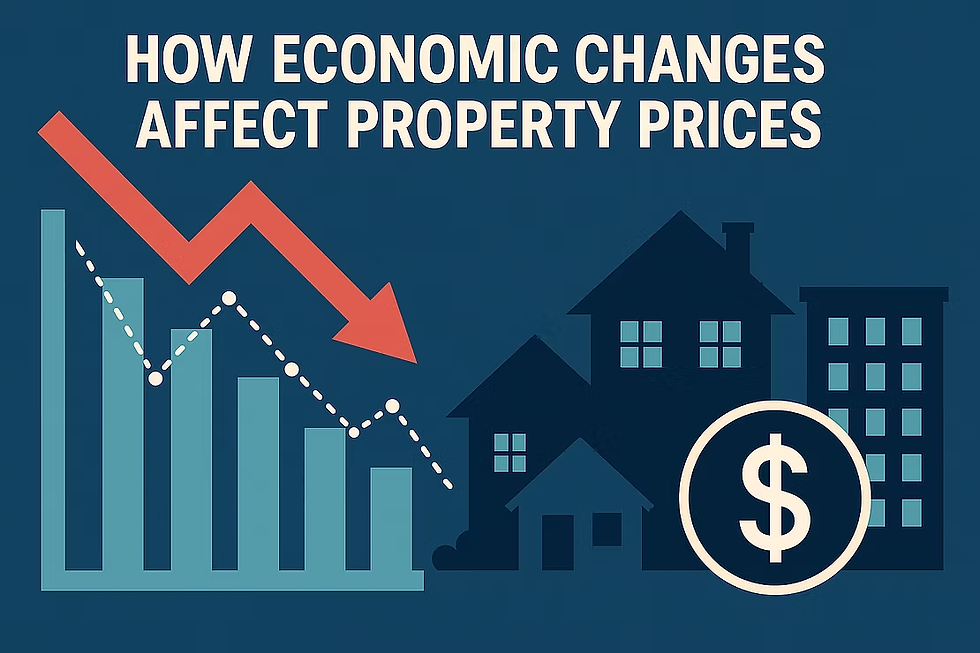Real Estate Websites
- Digital Transformation
- Sep 5, 2025
- 3 min read


In today's digital age, real estate websites have transformed how buyers, sellers, and agents interact with the property market. From
browsing homes on your smartphone to closing deals online, these platforms have become essential tools in the real estate ecosystem. But what makes real estate websites so important, and how do they shape the market? Whether you're a potential homeowner, investor, or industry professional, understanding these websites can unlock new opportunities. Let’s delve deeper.
Why Real Estate Websites Matter
Traditionally, real estate transactions relied heavily on physical visits, paper listings, and word-of-mouth. This process could be slow, limited, and often frustrating. Enter real estate websites: they democratize access to property information, increase market transparency, and streamline communication between parties.
According to the National Association of Realtors, approximately 44% of buyers start their property search online, making the web the first stop for most.
These sites provide detailed property information, virtual tours, price comparisons, and neighborhood insights—features that were once only available via real estate agents or physical visits.
Real estate websites don’t just digitize listings; they enhance decision-making and market efficiency.
Core Features of Real Estate Websites
Real estate websites today are packed with features designed to enhance user experience and deliver key information quickly. Here are their fundamental components:
1. Comprehensive Search Filters
Users can narrow down listings with filters such as:
Location (city, neighborhood, zip code)
Property type (house, condo, apartment)
Price range
Number of bedrooms/bathrooms
Amenities (pool, garage, garden, etc.)
For example, Zillow — one of the most visited real estate platforms in the U.S. — allows users to filter by school district, lot size, and even foreclosure status, providing a granular search experience.
2. High-Quality Imagery and Virtual Tours
Modern websites leverage high-resolution photos, 3D walkthroughs, and even augmented reality features to help buyers visualize properties without physical visits. Realtor.com and Redfin offer interactive virtual tours, which proved especially vital during the COVID-19 pandemic when in-person showings were limited.
3. Market Data and Analytics
Many platforms provide detailed market trends, including:
Average prices by area
Price history of individual properties
Days on market statistics
Forecasts and investment insights
This data empowers buyers and investors to make informed choices and spot lucrative opportunities early.
4. Agent and Seller Connections
Real estate websites also facilitate direct communication between buyers and agents or sellers. Users can schedule tours, request more info, or even start negotiations online, reducing friction in the buying process.
Platforms like Compass and Keller Williams have integrated CRM tools for agents, ensuring timely follow-ups and personalized experiences for clients.
Real-World Success Stories
The rise of real estate websites has revolutionized property transactions globally. Consider these examples:
Airbnb’s growth: Initially, Airbnb disrupted hospitality by connecting hosts and travelers online. Similarly, real estate websites disrupt how properties are bought and sold by cutting traditional barriers.
In India, Magicbricks and 99acres have enabled middle-class families to access urban properties more transparently, facilitating rapid urban development.
In the U.S., Zillow’s "Make Me Move" feature lets homeowners anonymously indicate a price at which they might consider selling, turning casual browsers into potential deals.
Moreover, by incorporating AI, many sites now offer personalized recommendations based on user behavior, further refining the property search experience.
Challenges and Future Trends
Despite their advantages, real estate websites face challenges:
Data accuracy: Listings may sometimes be outdated or misleading, stressing the need for regular updates.
Market saturation: With countless portals available, users can get overwhelmed without clear differentiation.
Security concerns: Sensitive financial data needs robust protection measures.
Looking ahead, real estate websites are expected to grow smarter with augmented reality (AR), blockchain for secure transactions, and AI-driven predictive analytics, making the buying process even more seamless.
Conclusion: Real Estate Websites are Game-Changers
Real estate websites have redefined how properties are marketed, searched, and sold, making the process efficient, transparent, and user-friendly. By integrating high-quality visuals, data insights, and interactive tools, these platforms empower buyers, sellers, and agents alike.
As technology continues evolving, these websites will become even more intuitive and indispensable. For anyone interested in property—whether buying your dream home or investing in real estate markets—embracing these digital tools is not just convenient but essential to stay competitive and informed.
Remember: The future of real estate is online. Harnessing the power of real estate websites today can lead you to the best deals, smarter investments, and a smoother path to ownership or sale.



Comments